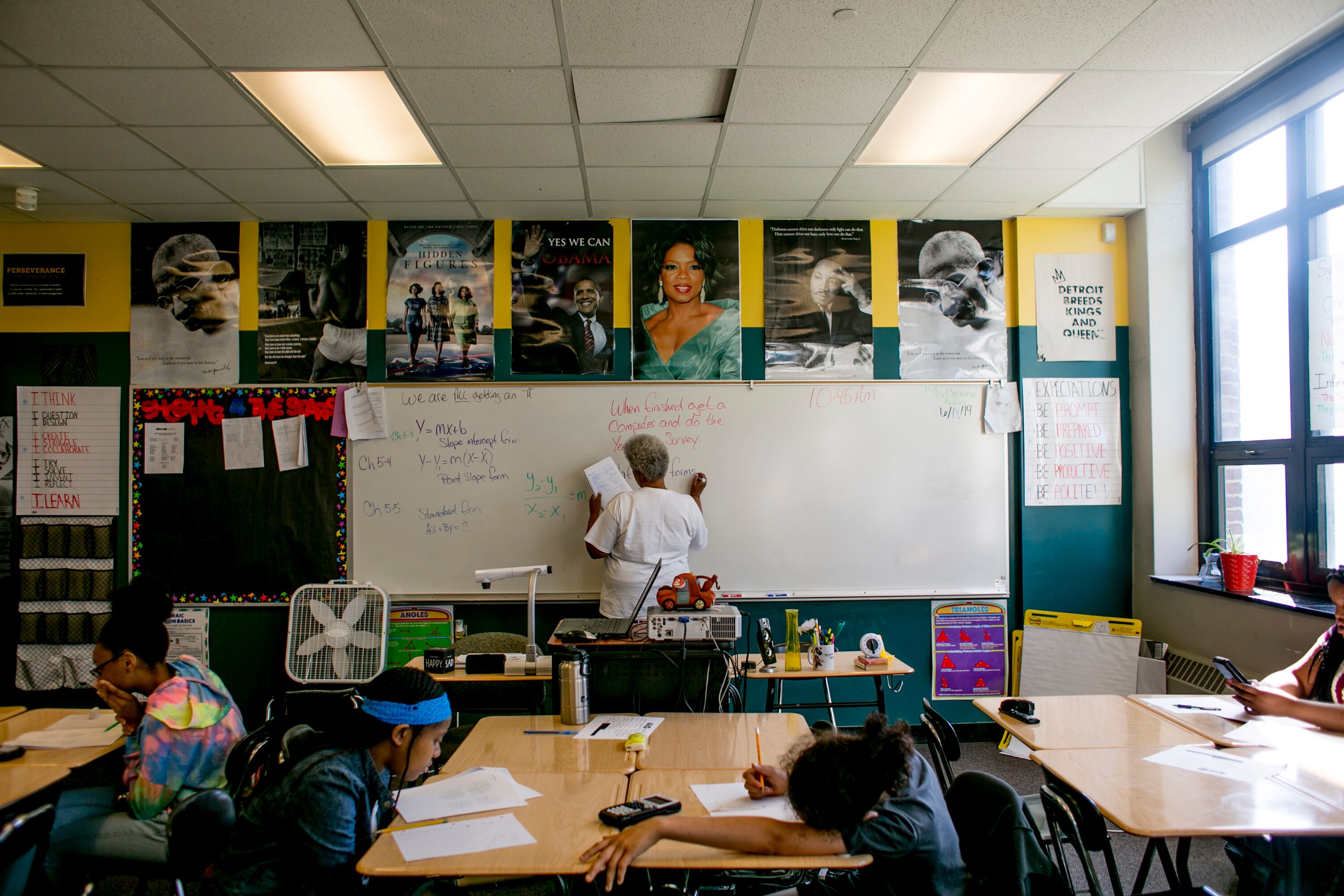A settlement has been reached between Gov. Gretchen Whitmer and the plaintiffs in the historic “right to read” lawsuit that argued Detroit children have a right to literacy.
Whitmer’s office released a joint statement at nearly 1 a.m. Thursday morning.
“We are pleased to announce that we have reached a settlement that will help secure the right of access to literacy for students in Detroit who faced obstacles they never should have faced,” the statement read.
“This landmark court decision recognizes that every child in Michigan deserves an opportunity to obtain an education, which is essential to having a strong foundation in life and a brighter future.”
The statement said details will be released later Thursday. But the settlement could have wide-reaching implications and would ensure that the precedent of a right to an education will stand at least for a while.
Whitmer had been under intense pressure to settle the lawsuit.
A federal panel on the Sixth Court of Appeals in Cincinnati ruled last month that the U.S. Constitution guarantees a right to basic literacy, laying down a major new legal landmark and handing a victory to the Detroit students who argued in the 2016 lawsuit that they’d been deprived of an education by the poor condition of the city’s schools during a period in which the state was largely in control of the district.
Republican lawmakers in the Michigan Legislature asked the full appeals court to reconsider the panel’s decision, calling it a “precedent-setting error of grave and exceptional public importance.”
Meanwhile, on Wednesday a group of attorney generals from 10 states (Tennessee, Arkansas, Indiana, Kansas, Kentucky, Louisiana, Mississippi, Nebraska, Ohio, and Texas) filed a brief in support of the defendants. They too are requesting a review by the full court and rule that the Constitution doesn’t “guarantee a positive right to education.”
“Forcing states to engage in expensive and interminable litigation over whether their education systems meet the panel’s amorphous standard will only consume additional resources that undoubtedly would be better spent elsewhere,” the states’ brief says.
Chalkbeat reported Wednesday that Whitmer was in settlement talks. Among the things being requested by plaintiffs and officials from the Detroit school district: A commitment to equitable funding, funding for literacy initiatives, and facilities improvement.



